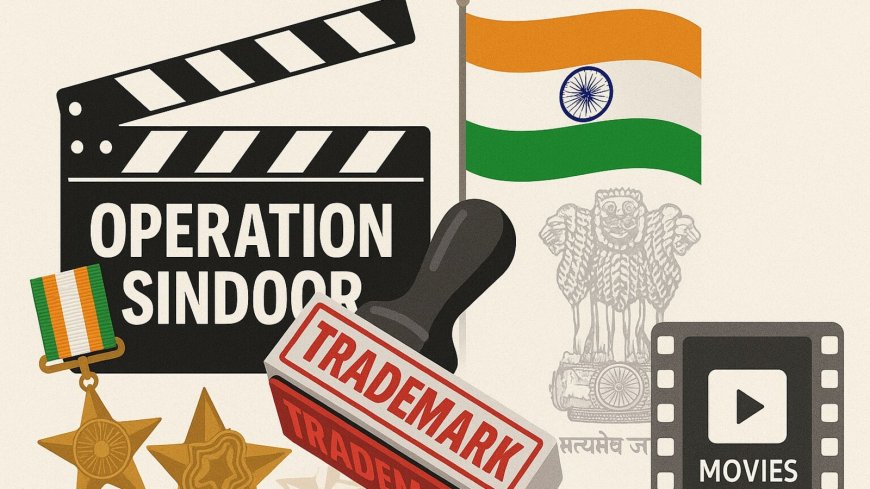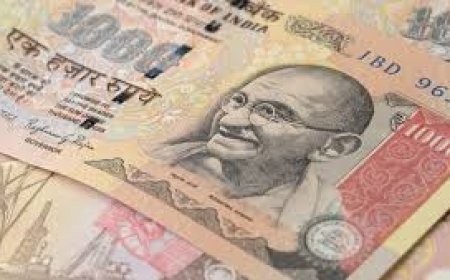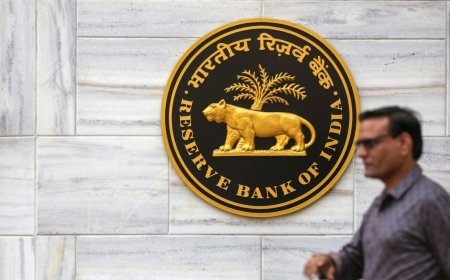Mint Explainer: Can You Trademark a Military Operation? The Law Behind ‘Operation Sindoor’ Dispute
The controversy around 'Operation Sindoor' raises questions about trademarking military operations. Here's a legal explainer of the ongoing debate.

Introduction: A Trademark Tug-of-War Over Patriotism?
A curious intellectual property (IP) dispute has recently gripped India’s legal and media landscape. A private firm’s attempt to trademark the name ‘Operation Sindoor’, referencing India’s daring rescue of citizens from war-torn Israel, has sparked outrage — not just from citizens, but from legal experts and the government itself.
The controversy raises a deeper question: Can anyone trademark the name of a military operation? If so, who owns the rights — the government, the military, or any enterprising individual?
What Is 'Operation Sindoor'?
'Operation Sindoor' refers to the Indian Air Force’s humanitarian mission launched in October 2023 to evacuate Indian nationals from conflict-hit Israel. The name symbolically refers to the sacred red powder worn by married Hindu women, evoking emotion and cultural resonance. The term was never officially announced by the Ministry of Defence but gained popularity on social media.
Several news outlets and public personalities adopted the name informally, associating it with Indian valor and humanitarian commitment. However, the controversy began when a private marketing agency reportedly filed a trademark application to claim exclusive usage rights for the term.
The Legal Dispute: Public Operation, Private Ownership?
According to the Indian Trademark Act, 1999, trademarks are granted to distinguish the goods or services of one entity from another. But using the name of a military operation — especially one connected to national interest — invites serious legal and ethical scrutiny.
IP attorney Rohan Mahajan, partner at an IP law firm in Delhi, explains:
“You cannot trademark something that is deceptively similar to national symbols, government names, or official designations. Military operations fall into a sensitive zone, especially if they are conducted by the sovereign.”
Mahajan points to Section 9 and Section 11 of the Trademark Act, which prohibit registration of names that may hurt religious sentiments, cause deception, or are against public interest. Additionally, Rule 13 of the Emblems and Names (Prevention of Improper Use) Act, 1950 may apply here.
Why the Government May Object
The Ministry of Defence is expected to contest the trademark claim. Sources suggest that branding a national operation could distort public perception and commercialize government efforts meant purely for rescue and relief.
A senior defence official, speaking anonymously, noted:
“Operation Sindoor was never about branding. It was a mission of humanity and rescue. To see it being turned into a brand or product name is against the spirit of our forces’ work.”
Legal experts argue that even if the operation wasn’t officially named 'Sindoor' by the government, its close association with a public defence initiative gives it a functional and emotional identity that should remain in the public domain.
Commercial Use vs. Public Interest
Trademarking a military or government-associated term could set a dangerous precedent. There is concern that it may open the floodgates to brand hijacking, where enterprising individuals quickly appropriate terms related to national events — from surgical strikes to rescue missions — for commercial gain.
The ethical concern is also noteworthy. Branding humanitarian missions risks trivializing national efforts and can be perceived as profiteering off tragedy, especially if used for unrelated commercial goods or political messaging.
Has This Happened Before?
Interestingly, this is not the first time such a debate has surfaced. During the Ukraine conflict, several private firms abroad attempted to trademark terms like “Kyiv Ghost” and “Zelenskyy Hero”, only to be rejected by IP offices citing public policy grounds.
In India, after Operation Ganga (India’s 2022 evacuation mission in Ukraine), a few companies tried to name products and NGOs after the term. The government reportedly discouraged such moves, though no legal action was taken at the time.
Investor & Market Impact: Why It Matters Beyond the Courtroom
While this may seem like a legal spat, the outcome could have real implications for branding, marketing, and investor confidence in emerging sectors. If such trademarking is allowed, we could see companies rush to capitalize on emotionally resonant national moments. This may distort the IP landscape, dilute the sanctity of public operations, and confuse consumers.
Brand strategist Amrita Kaur, who advises several startup founders, warns:
“Associating your brand with a defence operation might give short-term visibility but could attract long-term backlash and regulatory red flags. Investors may stay away from companies seen as controversial or insensitive.”
The Way Forward: A Clearer Legal Framework Needed?
The current dispute highlights a grey area in India’s IP law. While the law prohibits trademarks against public morality or national interest, there is no explicit provision barring registration of military operation names — unless they contain emblems or official insignia.
Some experts are calling for a dedicated clause in the Trademark Act to prevent future misuse. Others advocate for guidelines from the Ministry of Commerce and Industry or Defence on registering event-linked terms.
Until then, the fate of 'Operation Sindoor' will likely rest in the hands of the IP Appellate Board or courts — and could set a precedent for years to come.
The dispute over 'Operation Sindoor' is more than just a legal tussle — it is a clash between patriotic symbolism and private enterprise. As courts weigh the legality, the nation watches closely, hoping that the sanctity of military service isn’t reduced to a commercial tagline.
What's Your Reaction?
 Like
0
Like
0
 Dislike
0
Dislike
0
 Love
0
Love
0
 Funny
0
Funny
0
 Angry
0
Angry
0
 Sad
0
Sad
0
 Wow
0
Wow
0













































































